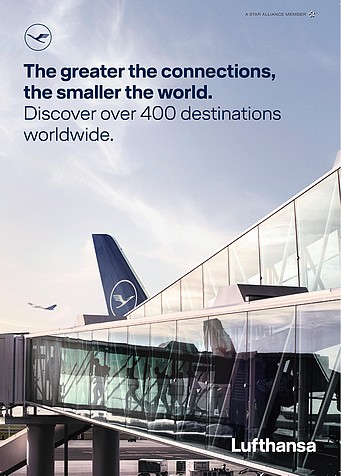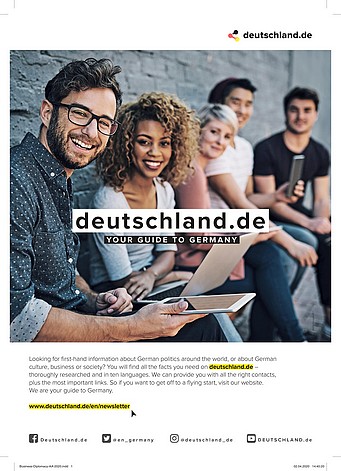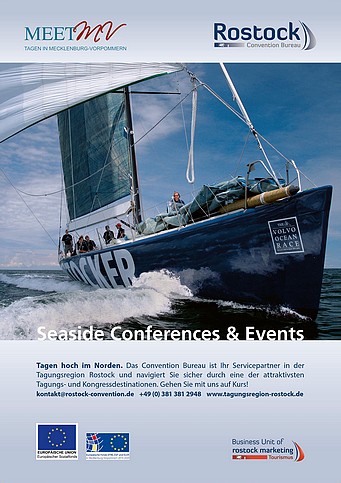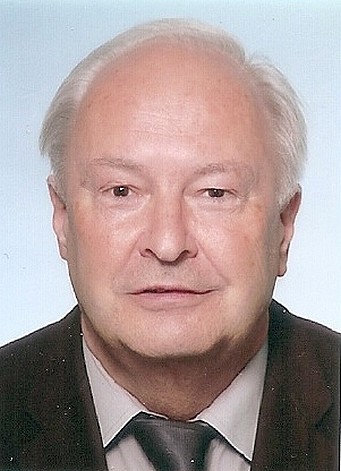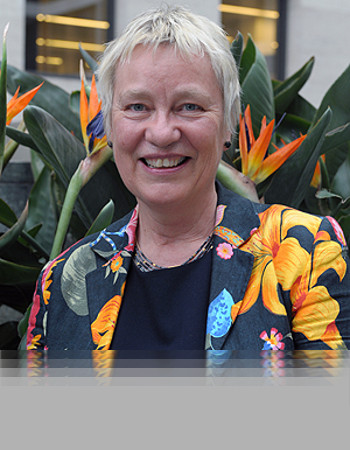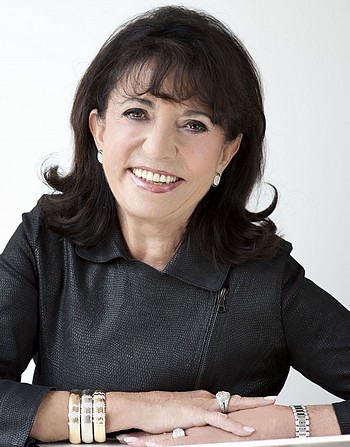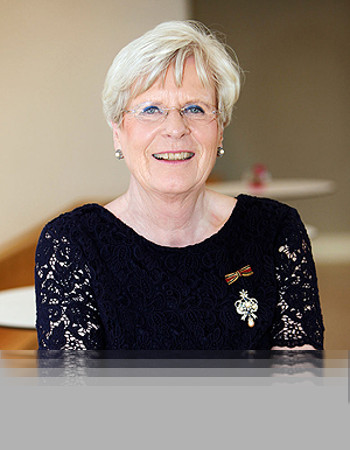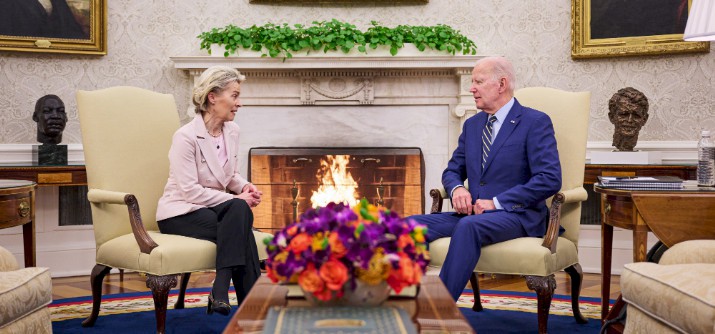
Globalization re-calibrated
Solving a Transatlantic Puzzle. On a Future of World Trade Order
Analysis by Svetlana Alexeeva
There is currently a lot of momentum in the previously conflict-ridden relations between China and the West. Last week, U.S. Secretary of State Antony Blinken was in China and finally met with President Xi Jinping. The signal was clear: China and the United States are talking again. The European Commission is set to unveil its economic security strategy to address trade and security risks in the context of rapid technological change and geopolitical tensions. Finally, the 7th Sino-German intergovernmental consultations just took place in Berlin. Chancellor Olaf Scholz and German ministers met with Premier Li Qiang and the Chinese delegation to discuss global challenges and opportunities for business. Do these developments testify to a new phase in China-West relations, back to more diplomacy and cooperation instead of confrontation and calls for decoupling? What does all this mean for the future international economic order?
How coherent is the transatlantic relationship? That was a topical issue during Donald Trump’s presidential term. The Biden-Harris Administration has made improving relations with EU a priority from the outset. Transatlantic concord is particularly relevant today, in face of massive shifts in the world order, and all the geopolitical and economic uncertainties we are witnessing in the course of the COVID-19 pandemic, Russia’s war in the Ukraine, China's rise, and the appearance of Global South countries as actors on the world stage.
Washington and Brussels are in many respects partners of first resort. Despite close ties, both have been recently embroiled in a trade dispute in the wake of the US Inflation Reduction Act of 2022 (IRA). The climate bill sets aside some $370 billion for tax credits and clean energy subsidies, but contains for such qualification "Made-in-America" requirements for electric vehicles (EV). IRA “will be the most significant policy driver for global emissions reductions in the century anywhere in the world”, Deputy Chief at the US Embassy in Germany, Woodward Clark Price, stated at a conference by Aspen Institute Germany recently. And it will “produce opportunities for European firms to participate in the benefits of the IRA, too”, he added.
In fact, energy and car companies have shown interest in US-based projects. And EU has been concerned about the prospect of relocation of manufacturing when European firms decide to take advantage of American subsidies. These fears are not unfounded because, unlike Mexico or Canada, the bloc has no free-trade agreement agreement with the US. “There is no reason why the European Union should be treated worse”, Rupert Schlegelmilch, Director DG Trade, EU Commission, stated at the same conference. Above this, the IRA’s “unprecedented amount has the potential to draw investment away from Europe, he added.
To deescalate a trade spat, a joint task force was set up – instead of calling the World Trade Organization (WTO) to decide on the “discriminating” IRA’s provisions. And in March, European Commission President Ursula von der Leyen traveled to Washington where she met with US President Joe Biden. The leaders agreed on a targeted deal that would allow EU’s exporters of critical minerals to benefit from IRA’s subsidies. Although the despite seems to be toned down at the moment, disruptions like over IRA which aims at green transition as the Green Deal Industrial Plan, presented by the EU executive branch in response to it, are counterproductive. They can provoke a subsidy spiral. Now Brussels is preparing new green initiatives, with increased levels of state aid, instead of putting efforts into improving competitiveness of the single market, and lowering costs of energy and bureaucracy.
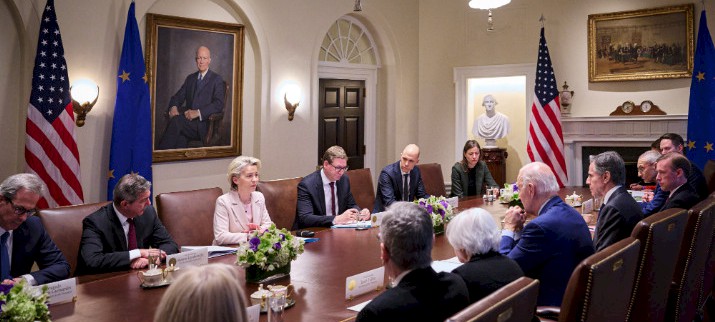
The new Trade and Technology Council as diplomatic channel
However, coordinated tuning across the Atlantic is important. The Trade and Technology Council (TTC) was launched in 2021 with this purpose in mind. The Council has become an important channel for consultations and exchange at the climate, trade and security nexus. It meets regularly and is chaired by senior government officials as, on the US side, Secretary of State Antony Blinken, along with Secretary of Commerce Gina Raimondo and Trade Representative Katherine Tai, while Executive Vice-Presidents Margrethe Vestager and Vadis Dombrovskis are on the European Commission’s side.
The operational work is carried out by ten working groups on specific policy areas, such as standards for EV charging, cybersecurity, artificial intelligence, clean technology, export controls and semiconductor supply chains. TTC is “the mechanism through which we are seeking to collaborate on an extraordinary wide range of issues, and not just trade”, comments David Weiner from the Office of the US Trade Representative for Europe. This it is particularly true with respect to China.
China: Dealing with a systemic rival
Although the allies are united in the assessment of challenges posed by the Chinese Communist Party, there is yet no convergence how to counteract China’s rise effectively. For EU, the greatest Asian power is “a partner for cooperation and negotiation, an economic competitor and a systemic rival”. The US unequivocally defines the People's Republic of China (PRC) as a threat to national security and international order. “China has the capability to directly attempt to alter the rules-based global order in every realm and across multiple regions, as a near-peer competitor that is increasingly pushing to change global norms and potentially threatening its neighbors”, as the annual report of the US Intelligence Community of February, 2023, states. Therefore, the US advocates decoupling, especially with respect to semiconductor supplies, and cutting China off from Western advanced technology. The Europeans prefer, by contrast, a more nuanced approach aimed at reducing dependencies in sensitive areas.
Currently, Germany moves forward with a National Security Strategy taking a down-to-earth look at its main trading partner. The strategy has not been framed against China, reaffirms Tobias Lindner, Minister of State of the German Federal Foreign Office. “We cannot simply decouple from it, but we must prevent economic coercion”. Instead, Berlin – along with the strategic proposals from Brussels, such as the EU Chips Act of 2022, or the Critical Raw Materials Act announced in March, 2023 – strives to reduce critical dependencies. Besides, the US and EU still “need to clarify what defines a systemic rivalry, and what are the fields in which cooperation with a systemic rivalry is still possible”, emphasizes Lindner.
Paralyzed for years: WTO dispute settlement
The increased strategic competition between America and China, and its implications are a central topic of world politics today. Partly due to the escalating China-US tensions, a WTO reform is lacking. Hence, “the guardian of multilateral trade rules” is unable to fulfill its main function, which is to settle disputes between its 164 members. Many of WTO tools must be revised, but the US is not quite eager on it. And the Europeans are hesitating to take action themselves.
Somewhat functional is WTO anyway. Its Deputy Director-General, Angela Ellard, warns: “In the last years, as governments seek resilience for their countries, the WTO has witnessed increased attempts to on-shore, near-shore or friend-shore of supply chains. Wishing to conduct business with like-minded partners is understandable. But the consequence will be more vulnerabilities, and a greater exposure to shocks”. WTO estimates that decoupling of the global economy into two blocs would slash long-term global real GDP levels by 5 per cent. “The high cost of fragmentation shows, that we need more strategic multilateralism, and more, not less international cooperation”, Ellard added.
A new world: oscillating, but trending to multipolar
To sum up, what kind of world order can we expect, and what role should the US and EU play in shaping it? Well, TTC is a first option to intensify dialogue and coordinate approaches. “Standing up the TTC is a welcome move to deepen ties across the Atlantic”, as experts from the Center for Strategic and International Studies in Washington put it. It’s flexible enough to be as open as possible for dialogue – and even take third parties’ interests into account.
Back to the Biden-von der Leyen meeting in Washington. Both incentive programs, the EU Green Deal Industrial Plan and IRA should work in tandem, the leaders declared in a joint statement published on 10 March 2023. Apart from a critical minerals deal, a Clean Energy Incentives Dialogue is to be set under the umbrella of TTC to “facilitate information-sharing on non-market policies and practices” (that is: China). Besides, the US-EU Global Arrangement on steel and aluminum is to be fully negotiated by October, 2023. Ultimately, Sherpas should address economic security and prepare key recommendations by summer.
When it comes to a China strategy, the US is seeking to tighten export controls to curb China's high-tech and defense modernization and to limit its power and influence. Actually, this is geopolitical and strategic reasoning behind TTC, and IRA, too. Europe goes the same pathway of green transition, and has undertaken efforts to increase its strategic autonomy. Yet toward the greatest Asian power, the bloc prefers a softer approach than re-shoring. In the meantime, the PRC undergoes efforts to cast itself as a global leader and peace mediator. A Chinese-brokered peace agreement between Saudi Arabia and Iran signed on 10 March, 2023, in Beijing is the first success of that kind ever. If it turns out to be a historic realignment drawing together countries that until recently were bitter foes, this strategic divide in the Middle East would be bridged for the first time independently of Washington.
The world is changing, and nobody knows what the new world will look like. America and Europe should start turning more attention to other major regional powerhouses, such as India, Brazil and Japan, and seek collaboration with them, for mutual benefit. As multipolarity returns, putting greater weight on soft power, diplomacy and multylayered relationships might be not a bad strategy.
March, 19, 2023 - Updated June, 20, 2023
Author's contact:
Svetlana Alexeeva is owner of DIGITAL INSIGHT CIS & Eastern Europe: Svetlana.Alexeeva@digital-insight.de
2023-06-21


BOTSCHAFTER IN BERLIN
Hier finden Sie alle wichtigen Informationen über die ausländischen Botschaften in Berlin von A wie Afghanistan bis Z wie Zypern. Schauen Sie doch mal rein unter www.botschafter-berlin.de.
MONATSBRIEF
Wenn Sie sich für unseren kostenlosen Monatsbrief anmelden möchten, senden Sie bitte eine Nachricht.
LESER ÜBER UNS
Impressum | Datenschutzerklärung
© Diplomat Media Berlin 2017 —


